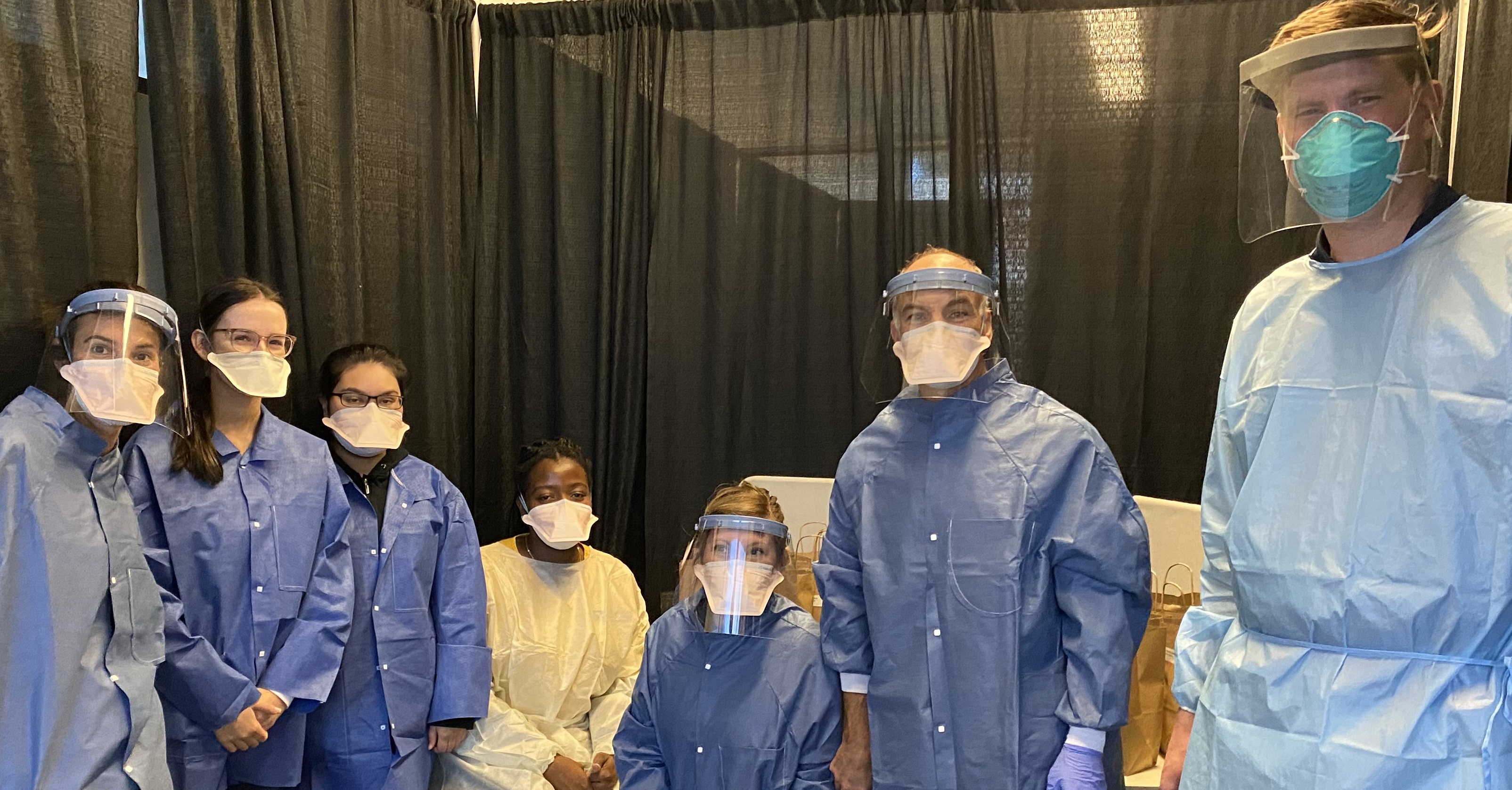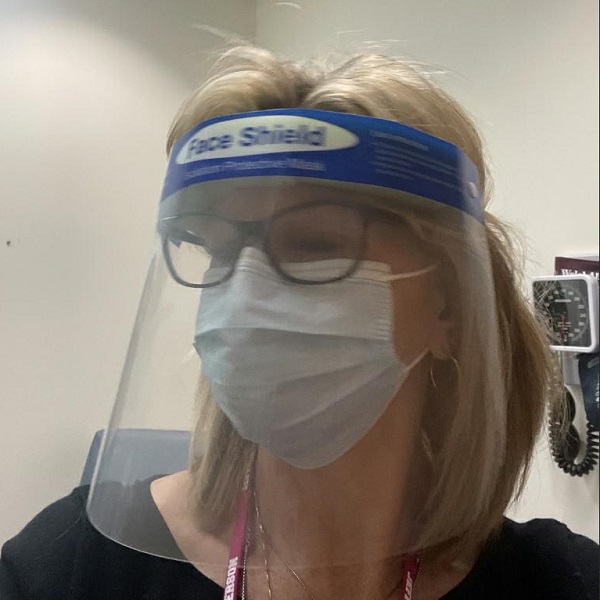CNHP Faculty Roles in DU Testing and Tracing
December 21, 2020
“When it comes to healthcare careers, experiential learning is very important—it shapes students as future clinicians, future educators and future researchers,” explains Kymberlee Montgomery, DNP, a clinical professor of nursing and senior associate dean of nursing and student affairs. “We prepare them from day one so they're ready to get out into the workforce with experience making them more attractive applicants,” continued Montgomery. Gaining this valuable work experience, especially through the University’s Co-op program, makes Drexel a top choice for many.
Three College of Nursing and Health Professions students jumped at the chance for a co-op experience and to give back to their community when Drexel expanded its testing and contact tracing for faculty, students and professional staff. Along with Montgomery, Kim McClellan, EdD, an assistant clinical professor of nursing who is now leading the testing effort, started at the very beginning of the pandemic testing and tracing in the community.  They initially enlisted a very dedicated group of nursing faculty volunteers who just wanted to help, but as need increased, the operation expanded. COVID-19 testing is now being done in Race Hall and the team now has seven full-time co-ops and 12 additional positions soon being filled. On the contact tracing side, four highly trained students call individuals, fill out initial intake forms, provide education, answer questions or hand off cases to the faculty lead of the day. On the testing side, third-year health sciences students Saznin Chowdhury and Talia DiBonaventura and fourth-year nursing student Sarah Okwuoha are working on the front lines administering tests to fellow students on campus.
They initially enlisted a very dedicated group of nursing faculty volunteers who just wanted to help, but as need increased, the operation expanded. COVID-19 testing is now being done in Race Hall and the team now has seven full-time co-ops and 12 additional positions soon being filled. On the contact tracing side, four highly trained students call individuals, fill out initial intake forms, provide education, answer questions or hand off cases to the faculty lead of the day. On the testing side, third-year health sciences students Saznin Chowdhury and Talia DiBonaventura and fourth-year nursing student Sarah Okwuoha are working on the front lines administering tests to fellow students on campus.
 The ability to collaborate is a silver lining of the pandemic. Montgomery, also the founder of the Drexel University Partnership for Interprofessional Education (IPE), looked at this global health crisis on a micro level within the context of the University and asked what educational experience is possible for students in every discipline at Drexel. “The COVID-19 work we are doing is bringing students from many areas of study together. It’s not just for those in health care who need clinical time or supervision in different specialties,” Montgomery said. “We have students in biomedical engineering and arts and sciences working on our teams. These are individuals who want a better understanding of what this pandemic looks like through a lens outside of the classroom,” she explained. McClellan is excited to continue offering experiential learning during the pandemic to anyone who might benefit. They want to expand the partnerships with the College of Medicine and Dornsife School of Public Health to grow their interprofessional team. “As the science evolves, our practice and policies evolve immediately,” offered McClellan. “Students get to see this firsthand. The team comes together to develop real solutions with everybody at the table. This is stuff you just cannot learn in a book,” she concluded.
The ability to collaborate is a silver lining of the pandemic. Montgomery, also the founder of the Drexel University Partnership for Interprofessional Education (IPE), looked at this global health crisis on a micro level within the context of the University and asked what educational experience is possible for students in every discipline at Drexel. “The COVID-19 work we are doing is bringing students from many areas of study together. It’s not just for those in health care who need clinical time or supervision in different specialties,” Montgomery said. “We have students in biomedical engineering and arts and sciences working on our teams. These are individuals who want a better understanding of what this pandemic looks like through a lens outside of the classroom,” she explained. McClellan is excited to continue offering experiential learning during the pandemic to anyone who might benefit. They want to expand the partnerships with the College of Medicine and Dornsife School of Public Health to grow their interprofessional team. “As the science evolves, our practice and policies evolve immediately,” offered McClellan. “Students get to see this firsthand. The team comes together to develop real solutions with everybody at the table. This is stuff you just cannot learn in a book,” she concluded.
By Roberta S. Perry